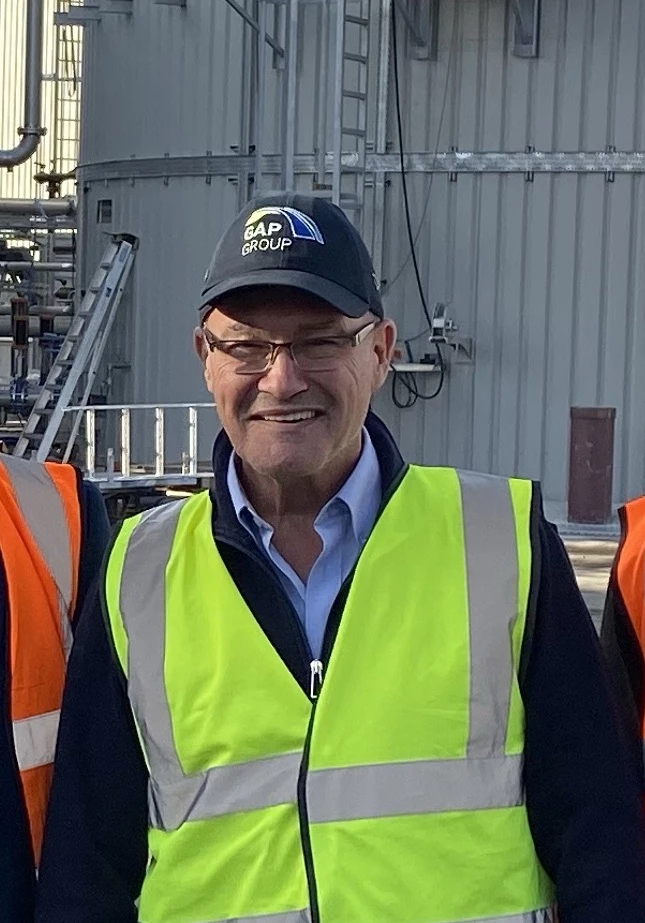
Partner Article
In light of new carbon emission targets Gap Organics calls for the hospitality sector to lead the way in food waste management
A North East waste management company is highlighting the importance of delivering a major shift in the way the hospitality sector disposes of food waste in light of the ambitious 2035 carbon emissions target announced by the government last week.
Restaurants, pubs and other commercial enterprises in the sector could play their part in reducing carbon emissions by recycling waste food in a way that benefits the environment as outlined under the delayed Environment Bill, becoming part of the circular economy.
The process enables waste to be diverted from EfW (Energy from Waste - controlled incineration) and landfill, and creates renewable biogas for heat generation and fertiliser for local farming activities.
The move comes as lockdown restrictions are being eased and the hospitality sector begins to reopen, with diners returning to beer gardens from April 12 and restaurants from May 17.
Paul Palmer director of food waste specialist Gap Organics, part of the recycling and logistics business GAP Group NE based in Gateshead said: “As the economy opens up and we start to see a natural increase in pub and restaurant commercial activity there will be an increase in food waste.
“This is where this type of recycling becomes incredibly important as it can be part of the bigger picture protecting the future health of the environment and the sustainability of the commercial retail food sector as a whole.
“We all want to see the economy recover, particularly in the hard hit pub and restaurant sector and this needs be done in a sustainable way so that the environment becomes a beneficiary of a healthy thriving economy.”
The Environment Bill is currently being consulted on and is focused on changing the food collection process for commercial and household waste with the aim of improving the efficiency of recycling and ultimately helping to achieve carbon neutrality goals in the UK.
Gap Group NE brought the commercial Anaerobic Digestion (AD) process to Tyne and Wear for the first time at its Wardley Biogas plant in Gateshead, and is calling for more businesses and commercial organisations that produce food waste to be at the forefront of the ‘circular economy’.
Paul said: “Simply by recycling a single tonne of food waste, emissions of up to the equivalent of one tonne of carbon dioxide are avoided.
“Additionally because of the way food waste is collected when not source segregated i.e. in black bags via general waste, these customers are often paying more for their over weight General Waste charges than if they had dedicated Food Waste bins.
“So on top of the significant environmental benefits the process is more financially beneficial as well. The North East lags behind other areas, especially areas of London and the Southeast that have already successfully adopted residential food waste collection services.”
The idea behind the circular economy is that business priorities should be redefined to focus on society wide benefits that include keeping products and materials in continual use, significantly reducing waste and helping to regenerate natural systems.
Food waste is processed via Anaerobic Digestion - a sequence of processes by which microorganisms break down biodegradable material in the absence of oxygen. This transforms the waste food into biogas (methane and carbon dioxide) which can be used either in a combined heat and power (CHP) engine to generate renewable electricity or upgraded to Biomethane and injected directly into the National Grid. Both forms of energy are used by domestic and industrial customers.
The remaining liquid after the energy has been removed, known as Digestate, is a nutrient rich fertiliser. At Wardley Biogas it is no longer considered a waste, as it has been through strict certification classing the material PAS110, a high-quality Biofertiliser used by farmers to encourage the next cycle of life.
This was posted in Bdaily's Members' News section by 2B Communications Limited .
Enjoy the read? Get Bdaily delivered.
Sign up to receive our daily bulletin, sent to your inbox, for free.








 Raising the bar to boost North East growth
Raising the bar to boost North East growth
 Navigating the messy middle of business growth
Navigating the messy middle of business growth
 We must make it easier to hire young people
We must make it easier to hire young people
 Why community-based care is key to NHS' future
Why community-based care is key to NHS' future
 Culture, confidence and creativity in the North East
Culture, confidence and creativity in the North East
 Putting in the groundwork to boost skills
Putting in the groundwork to boost skills
 £100,000 milestone drives forward STEM work
£100,000 milestone drives forward STEM work
 Restoring confidence for the economic road ahead
Restoring confidence for the economic road ahead
 Ready to scale? Buy-and-build offers opportunity
Ready to scale? Buy-and-build offers opportunity
 When will our regional economy grow?
When will our regional economy grow?
 Creating a thriving North East construction sector
Creating a thriving North East construction sector
 Why investors are still backing the North East
Why investors are still backing the North East